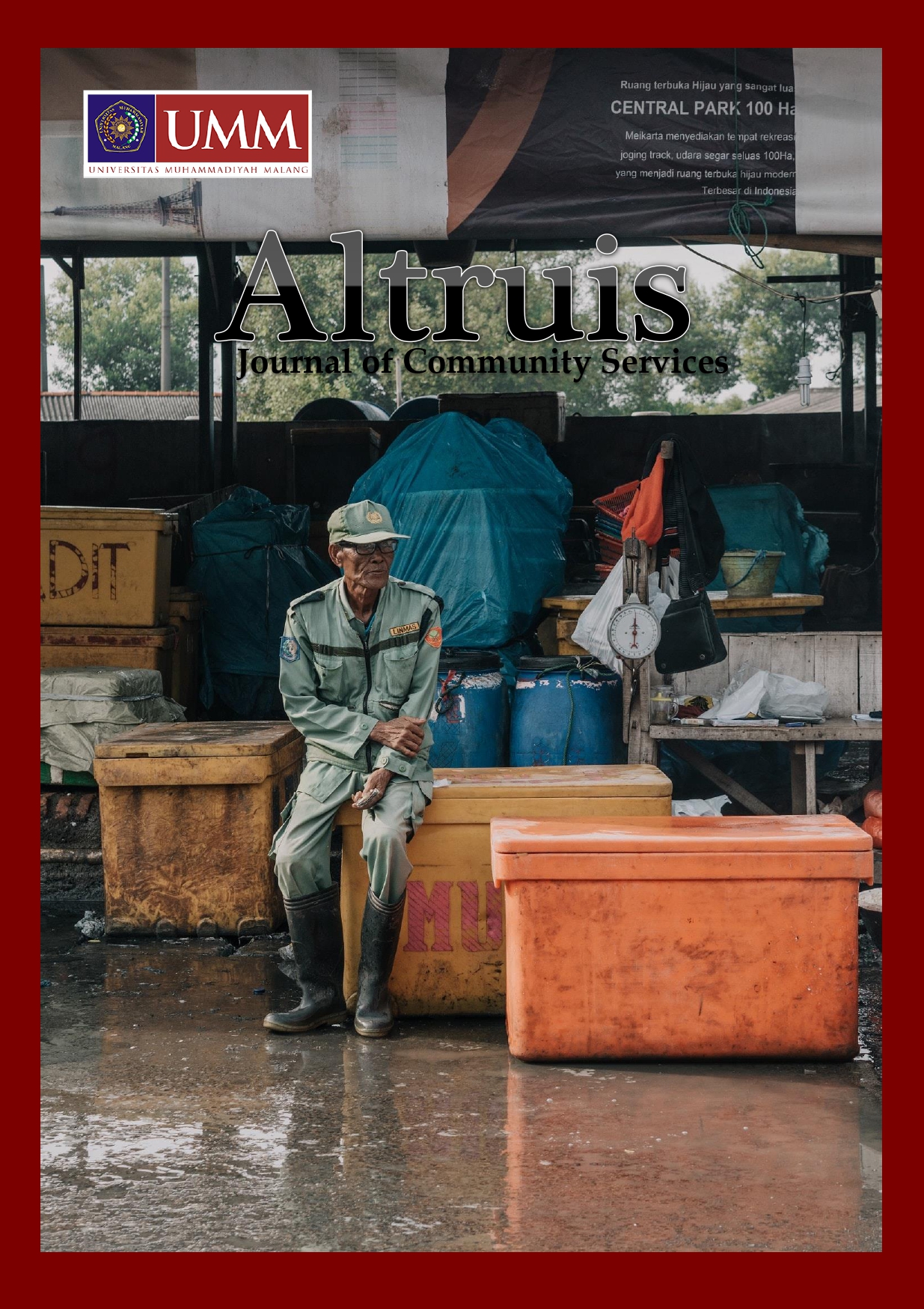Pelatihan Help-Seeking Need Analysis pada Siswa
DOI:
https://doi.org/10.22219/altruis.v1i1.11491Abstract
Help-Seeking merujuk pada intensi, aksi dan evaluasi untuk mendapatkan pertolongan belajar dari sumber external. Help-Seeking menjadi penting karena ia mengizinkan siswa untuk mengatasi kesulitan belajar yang tidak dapat ia selesaikan sendiri. Sayangnya, alih-alih memiliki sikap yang positif terhadap Adaptive Help-Seeking, siswa-siswa kebanyakan mengandalkan Executive Help-Seeking atau permohonan tolong akademik yang sekedar bertujuan untuk menggugurkan tugas dan kesulitan belajar seperti dengan melimpahkan tugas dan kesulitas belajar itu kepada orang lain. Untuk mengatasi hal itu, dilakukan pelatihan Help-Seeking Need Analysis. Program itu bertujuan untuk membekali siswa dengan pengetahuan mengenai Help-Seeking baik yang adaptive dan executive. Dengan mengembangkan skema mengenai Adaptive Help-Seeking, diharapkan siswa mampu mengadopsi pola pencarian tolong akademik yang adaptif. Metode pengumpulan data dilakukan dengan penyebaran skala Adaptive Help-Seeking yang telah divalidasi. Hasil analisis terhadap data menunjukkan bahwa siswa yang telah dilatih mengembangkan sikap yang lebih positif terhadap Adaptive Help-Seeking.
Downloads
References
Aleven, V., Roll, I., McLaren, B. M., & Koedinger, K. R. (2016). Help helps, but only so much: Research on help seeking with intelligent tutoring systems. International Journal of Artificial Intelligence in Education, 26(1), 205-223.
Aleven, V., Stahl, E., Schworm, S., Fischer, F., & Wallace, R. (2003). Help Seeking and Help Design in Interactive Learning Environments. Review of Educational Research, 73(3), 277-320. doi:10.3102/00346543073003277
Balcazar, F. E., Keys, C. B., & Garate-Serafini, J. (1995). Learning to Recruit Assistance to Attain Transition Goals:A Program for Adjudicated Youth with Disabilities. Remedial and Special Education, 16(4), 237-246. doi:10.1177/074193259501600407
Beisler, M., & Medaille, A. (2016). How Do Students Get Help with Research Assignments? Using Drawings to Understand Students' Help Seeking Behavior. The Journal of Academic Librarianship, 42(4), 390-400. doi:https://doi.org/10.1016/j.acalib.2016.04.010
Hibbard, K. L. (2001). Teaching students with learning disabilities to use a help-seeking strategy during independent practice activities.
Karabenick. (2003). Seeking help in large college classes: A person-centered approach. Contemporary Educational Psychology, 28(1), 37-58. doi:https://doi.org/10.1016/S0361-476X(02)00012-7
Karabenick. (2004). Perceived achievement goal structure and college student help seeking. Journal of educational psychology, 96(3), 569. Karabenick, & Knapp, J. R. (1988). Help seeking and the need for academic assistance. Journal of educational psychology, 80(3), 406. doi:http://dx.doi.org/10.1037/0022-0663.80.3.406
Schraw, G. (1998). Promoting general metacognitive awareness. Instructional science, 26(1-2), 113-125.
Selma, K., & Xiongyi, L. (2016). An Investigation of Graduate Students' Help-Seeking Experiences, Preferences and Attitudes in Online Learning. TOJET: The Turkish Online Journal of Educational Technology, 15(3).
Williams, J. D., & Takaku, S. (2011). Help seeking, self-efficacy, and writing performance among college students. Journal of writing research, 3(1), 1-18.
Wolford, P. L., Heward, W. L., & Alber, S. R. (2001). Teaching Middle School Students with Learning Disabilities to Recruit Peer Assistance During Cooperative Learning Group Activities. Learning Disabilities Research & Practice, 16(3), 161-173. doi:10.1111/0938-8982.00017
Zimmerman, B. J. (2002). Becoming a self-regulated learner: An overview. Theory into practice, 41(2), 64-70.
Downloads
Published
How to Cite
Issue
Section
License
Authors who publish in Altruis agree to the following terms:
- For all articles published in Altruis, copyright is retained by the authors. Authors give permission to the publisher to announce the work with conditions. When the manuscript is accepted for publication, the authors agree to automatic transfer of the publishing right to the publisher.
- Authors retain copyright and grant the journal right of first publication with the work simultaneously licensed under a Creative Commons Attribution-ShareAlike 4.0 International License that allows others to share the work with an acknowledgment of the work's authorship and initial publication in this journal.
- Authors are able to enter into separate, additional contractual arrangements for the non-exclusive distribution of the journal's published version of the work (e.g., post it to an institutional repository or publish it in a book), with an acknowledgment of its initial publication in this journal.
- Authors are permitted and encouraged to post their work online (e.g., in institutional repositories or on their website) prior to and during the submission process, as it can lead to productive exchanges, as well as earlier and greater citation of published work (See The Effect of Open Access).
This work is licensed under a Creative Commons Attribution-ShareAlike 4.0 International License.


